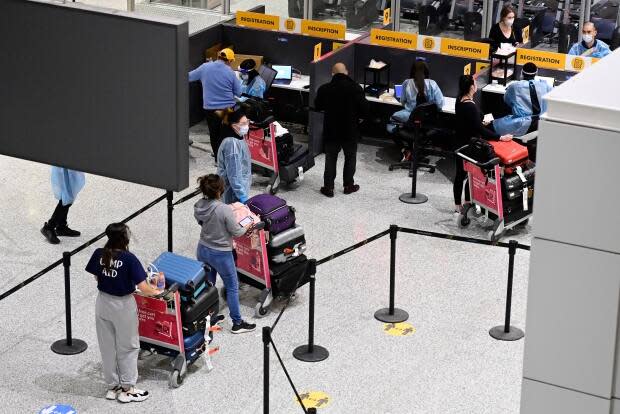Fully vaccinated in China but forced to quarantine in Canada, teacher questions why

David Brian just retired as a school principal in Suzhou, China, where he received his COVID-19 shots. He's fully vaccinated, but when he tried to return home to Canada for a visit, there was a problem: his vaccines are not recognized by the Canadian government.
Despite the easing of quarantine restrictions for fully vaccinated Canadians, Brian, who is from Harrow, Ont., was told to book a three-day hotel stay pending COVID-19 test results as part of a 14-day mandatory quarantine.
Brian, who remains in quarantine at his cottage, joined Windsor Morning on Wednesday to describe his experience.
In the spring, Brian received two shots of the Sinopharm vaccine, a product that is not among the list recognized by Health Canada.
"But it's recognized by the World Health Organization, what more do you have to do?" he said. "So it's this tit-for-tat thing, I think, countries not recognizing each others [vaccines], and it really creates a problem for people trying to do travel."
The government of Canada's website spells out which vaccines are recognized for the purposes of travel — Pfizer-BioNtech, Moderna, AstraZeneca-Oxford and Johnson and Johnson — and which products won't be sufficient for the purpose of waiving quarantine requirements. Among those not accepted are Sinopharm and the Russian Sputnik V shot.
Health Canada says, however, that more vaccines may be accepted in the future.
"We are aware that the current list may pose challenges for Canadians living and vaccinated abroad, as well as foreign nationals eligible to travel to Canada," a spokesperson said in an emailed statement on Wednesday.
"Decisions on which vaccines will be eligible for future inclusion on the list is ongoing and will be based on science. There will also be continued discussions with the provinces and territories."
Brian said he got his COVID-19 test results within 24 hours of arrival in Canada, so he left the hotel and continued on to complete the 14 days on his own property.
"I'm still on the hook for the three nights' hotel stay," which he said cost just over $300 per night.
Brian's situation reflects a growing issue surrounding vaccine recognition for travel and other purposes.
Vaccine mandates on some university campuses are causing confusion and complications for students who received shots not recognized by the World Health Organization, such as the Russian vaccine.
Canadians looking to travel abroad are facing obstacles as well. Some recently expressed frustration that some countries or tour operators aren't recognizing the Covishield version of the AstraZeneca-Oxford shot while others aren't recognizing vaccine mixing.
Meanwhile, Brian is wondering whether he should be getting re-vaccinated with one of the vaccines approved in Canada.
"If they just recognized it [Sinopharm], it would make life much easier," he said.

